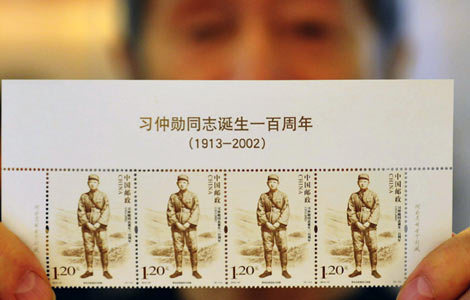A healthy course of action
Updated: 2013-10-16 07:25
(China Daily)
|
||||||||
According to guidelines issued by the State Council on Monday, the country will strive to set up a national health service system, spanning cradle to grave, and lift the value of the sector to more than 8 trillion yuan ($1.31 trillion) by 2020.
To facilitate the plan's fulfillment, the government has vowed to relax market access for non-governmental investment and extend non-profit private medical institutions the same treatment as that given to public medical service providers. At the same time, the approval procedures for the establishment of rehabilitation centers, hospitals and nursing homes will be simplified.
The government will also encourage commercial insurance companies to diversify health insurance products to cover more people, and support cooperation between medical institutions and nursing homes to provide elderly patients suffering from chronic diseases with community-based treatment and services.
Because of the serious insufficiency of healthcare resources as well as their uneven distribution, Chinese people have been struggling to get affordable medical treatment. Due to their exorbitant cost, medical services, together with education and housing, have been figuratively referred to as the three new mountains on people's backs.
Compared with some developed countries, where health services usually account for more than 10 percent of their gross domestic product, healthcare remains a substantially under-financed sector in China. On one hand, a lot has to be done to meet people's needs for quality and affordable medical services; on the other hand, tremendous commercial potential has yet to be tapped.
The suspension of strict controls on market access for non-governmental capital as well as the adoption of a series of preferential financial and tax policies will surely drive the development of the health service sector and ease its resource shortage.
Our rapidly aging population means additional demands for medical and healthcare services. The move to boost the development of the healthcare sector appears particularly important and urgent.
The entry of private and foreign capital is also expected to bring more competition to this mostly State-dominated sector and thus boost the vitality and efficiency of all market players, including those public medical institutions that are often blamed for poor services and low efficiency.
The enormous potential inherent in the health service, if better tapped, is also likely to bring a new growth point for China's slower-going economy.
(China Daily 10/16/2013 page8)
Most Viewed
Editor's Picks

|

|

|

|

|

|
Today's Top News
A life devoted to China-US ties
US inches toward deal to reopen govt
Alcoa CEO to be feted by US-China Committee
Hong Kong and AmEx throw culinary extravaganza
'Against human nature'
Nation honors father of Xi Jinping
Information transparency vital for image
$100b trade target for 2017
US Weekly

|

|















